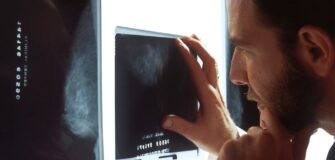Cheaper medicines now accessible under Govt Price Disclosure Policy
Share
From 1 October 2022, Australians will have access to cheaper medicines under the new and updated Pharmaceutical Benefits Scheme (PBS) because of the Government Price Disclosure Policy.
A trip to the pharmacist will be cheaper for thousands of families and will result in out-of-pocket savings of over $130 million for Australian patients and almost $930 million in savings for taxpayers.
Conditions, where patients have access to cheaper medicines, include migraines, psoriatic arthritis, breast cancer, stomach ulcers and bipolar disorder.
Up to half a million patients with stomach ulcers or gastroesophageal reflux disease can now expect to pay a maximum of $26.74 per script for esomeprazole 40 mg tablets, a saving of up to $6.84 per script.
From 1 October 2022, the Government is also listing additional cheaper medicines on the PBS to treat a number of conditions, including types of cancer and growth hormone deficiency in children.
This includes the listing of pembrolizumab (Keytruda®) which will be expanded to treat patients with squamous cell carcinoma of the head and neck. Without subsidy, patients can pay more than $135,000 per course of treatment.
An average of 500 patients per year could benefit from this expanded listing.
Hon Mark Butler, the Minister for Health and Aged Care said, “Listing these drugs on the PBS will improve the lives of thousands of Australian patients and their families.
“The Government is making a trip to the pharmacy cheaper for thousands of Australians.
“And we will cut the cost of medications for millions of Australians by reducing the PBS co-payment from the current maximum of $42.50 per script to a maximum of $30 per script from 1 January 2023,” Minister Butler said.
Medicines treating common conditions that will be cheaper for general (non-concessional) patients include:
- Up to half a million patients with stomach ulcers or gastroesophageal reflux disease will pay lower prices for their scripts. Patients can now expect to pay $26.74 per script for esomeprazole 40 mg tablets, a saving of up to $6.84 per script.
- For over 60,000 patients with schizophrenia or bipolar disorder, scripts for quetiapine 200 mg tablets will cost $28.42, a saving of up to $6.22 per script.
- More than 20,000 migraine sufferers and people with epilepsy can now expect to pay $34.90 per script for topiramate 200 mg tablets, a saving of up to $6.63. Similarly, scripts for the antiepileptic drug lamotrigine 200 mg tablets will cost $33.45 which represents a saving of up to $4.66.
- Around 15,000 patients suffering from severe psoriatic arthritis and prescribed leflunomide 20 mg tablets can expect to pay $37.19 per script, a saving of up to $5.31 per script.
- Women using anastrozole to inhibit the progression of breast cancer can now save up to $2.36 per script. Around 13,000 patients per year can now expect to pay $22.07 per script for a 1 mg tablet.
The PBS listing of pembrolizumab (Keytruda®) will be expanded to treat patients with squamous cell carcinoma of the head and neck. Pembrolizumab is an immunotherapy which works by helping the immune system fight certain cancers.
It is estimated that around 5,100 Australians will be diagnosed with head and neck cancer (including lip) this year alone.
Without subsidy, patients can pay more than $135,000 per course of treatment with pembrolizumab. An average of 500 patients per year could benefit from this expanded listing.
Avelumab (Bavencio®) will also be expanded as maintenance treatment for locally advanced (Stage III) or metastatic (Stage IV) urothelial carcinoma, a cancer that affects the bladder or urinary tract.
Urothelial carcinoma accounts for at least 80 per cent of all bladder cancers, but sadly only around 50 per cent of patients live more than five years after diagnosis
This expanded listing is expected to benefit 400 patients who would pay more than $106,000 per course of treatment without subsidised access to avelumab.
Decitabine with cedazuridine (Inqovi®) will list for the first time on the PBS to treat myelodysplastic syndromes (MDS) and chronic myelomonocytic leukaemia (CMML).
MDS is a group of diseases that affects the production of normal blood cells in the bone marrow, and CMML is a form of leukaemia characterised by high numbers of white blood cells, called ‘monocytes’, in the blood and bone marrow3.
In 2021, around 1,000 patients accessed a comparable treatment through PBS.
Without subsidy, Australians would pay more than $43,500 per course of treatment.
The Government will also list mecasermin (Increlex®) for the first time to treat children with primary insulin-like growth factor 1 deficiency (Primary IGFD). Children with Primary IGFD are very short for their age because their bodies do not make enough insulin-like growth factor-1 (IGF-1).
Mecasermin is a synthetic form of IGF-1 that replaces missing IGF-1 in the body which is a naturally occurring hormone and important for childhood growth.
An average of 80 Australian children will benefit from this listing each year.
Without subsidy, families might pay more than $40,500 per year for mecasermin.
Through the PBS, these treatments will cost just $42.50 per script or $6.80 with a concession.
Content from The Hon Mark Butler MP media page. Note: Content has been edited for style and length.
Ritchelle is a Content Producer for Healthcare Channel, Australia’s premier resource of information for healthcare.




Upcoming Events
6th Annual Aged Care Week
June 18, 2025
Subscribe
We send emails,
but we do not spam
Join our mailing list to be on the front lines of healthcare , get exclusive content, and promos.